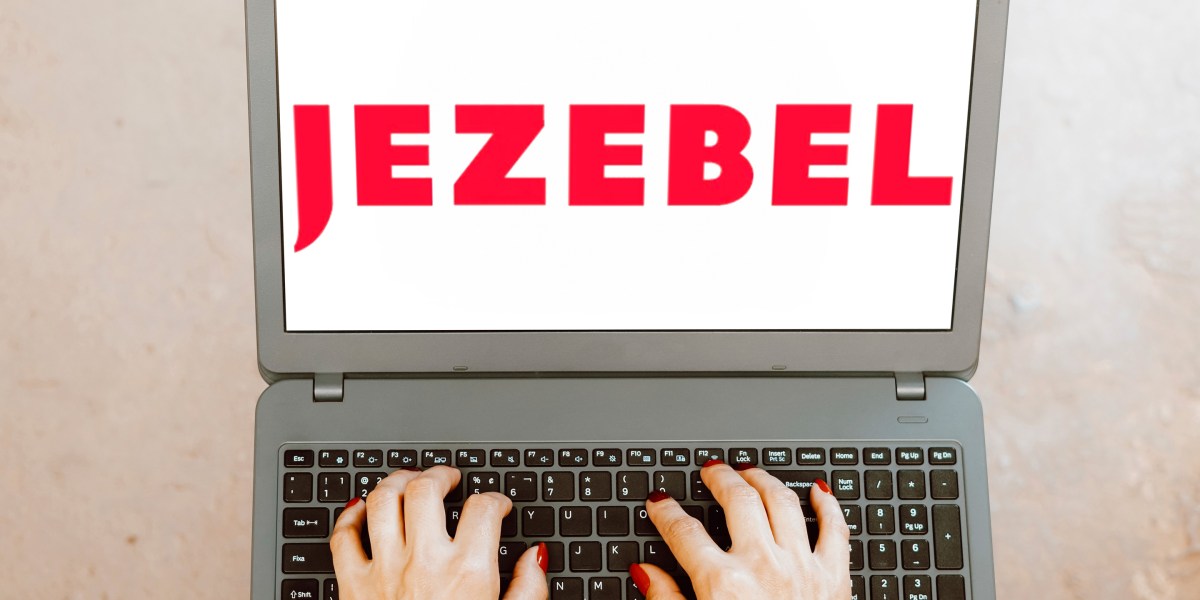
Good morning, Broadsheet readers! Poland’s leading political parties are expected to sign a coalition that could end the country’s abortion restrictions, the AI Pin project from Bethany Bongiorno and her husband will launch next week, and Jezebel’s shuttering marks the end of an era in women’s media. Have a restful weekend!
– Feminist til the end. In 2007, the website Jezebel started publishing under the Gawker umbrella, bringing a sharp new perspective to women’s media. It was feminist and funny and engaged with pop culture. It was honest and spoke directly to its reader, as founding editor Anna Holmes described in a New Yorker piece earlier this month. Its biting commentary on topics like abortion rights, sexual violence, and gender politics found an audience among women desperate for an alternative to glossy, fashion-focused women’s magazines.
Yesterday, parent company G/O Media shut down Jezebel. The website that once defined online women’s media is no more.
Over the past half-decade, the site experienced incredible upheaval. After Hulk Hogan’s Peter Thiel-backed defamation lawsuit shut down Gawker in 2016, other sites in the Gawker empire became part of Univision. Univision then sold the properties to private equity firm Great Hill Partners in 2019; the firm formed parent company G/O Media.
G/O Media’s ownership of the sites has been tense. Editors—and entire staffs—have repeatedly quit.
Last month, Axios reported that Jezebel was for sale and named Bustle Digital Group and Dear Media as potential buyers. G/O Media CEO Jim Spanfeller blamed his decision to shutter Jezebel and lay off 23 staffers on not finding a buyer. (The site’s staff blamed executives’ “strategic and commercial ineptitude” for its fate.)
Jezebel ushered in a boom in online feminist media, and many of those verticals are gone now too, from Broadly at Vice (which also announced layoffs yesterday) to DoubleX at Slate. The New York Times newsletter In Her Words is no more. The Washington Post folded gender vertical The Lily into its broader coverage last year but kept The Lily’s social media presence and dedicated website alive before shutting those down in September, too.
Certainly, it’s a difficult time for ad-supported media across the board. But why can’t publishers seem to make women’s media work, especially in the Taylor Swift-Beyoncé-Barbie era when women are flexing their spending power? Advertisers, who may view “women’s issues” as fringe or controversial, surely deserve some of the blame too.
And then there’s the question of what’s left. Of course, you are currently reading the Broadsheet, which remains dedicated to covering women in business as part of Fortune and its Most Powerful Women community. And lot of great reporting about women and gender is still happening at other big-name media titles, including publications that have closed their women-focused verticals and traditional women’s magazines that have found their feminist, socially-conscious streak. Women-focused publications with a defined niche, from politics at the 19th (notably, a nonprofit) to sports media brand the Gist, seem to be faring better. Some of the conversations that used to take place in the women-centered blogosphere have relocated to social media, podcasts, independent newsletters, and creators’ content. Women are at the forefront of the news industry, leading coverage of all kinds.
Just because business strategies have shifted doesn’t mean women’s stories disappear. So keep reading, writing, and sharing—and maybe the media big dogs will realize what they’re missing.
Emma Hinchliffe
emma.hinchliffe@fortune.com
@_emmahinchliffe
The Broadsheet is Fortune’s newsletter for and about the world’s most powerful women. Today’s edition was curated by Joseph Abrams. Subscribe here.
ALSO IN THE HEADLINES
– On air goals. The National Women’s Soccer League inked a new four-year media rights deal with CBS Sports, ESPN, Prime Video, and Scripps Sports. It’s reportedly valued at $240 million—a gigantic leap from a previous three-year, $4.5 million agreement with CBS. ESPN
– Reproductive rights redux. The three parties in the lead to take over as Poland’s next government are expected to sign a coalition agreement Friday that could reverse the country’s near-complete ban on abortion. The change isn’t guaranteed, but women in the country are demanding an end to the restrictions that likely fueled big parliamentary losses for Poland’s anti-abortion Law & Justice party in October. Bloomberg
– Dropping a pin. A Nov. 16 release date was finally announced for Humane’s AI Pin, which cofounder Bethany Bongiorno has been teasing as the next iPhone. Bongiorno is confident that the pin, which performs the functions of an up-to-date smartphone and projects visuals the size of an Airpods case, will become a standard on shirts, sweaters, and coats in the future. The pin will sell for $699 with an additional $24 per month subscription fee for unlimited calling, texting, and data on T-Mobile’s network. Wired
– Long drive to CMAs. Tracy Chapman became the first Black songwriter to win Song of the Year at the Country Music Awards on Wednesday for “Fast Car,” a song she released 35 years ago. Country star Luke Combs’ cover of the track revived the song and made Chapman the first Black woman to hit No. 1 on Billboard’s Country Airplay chart. The Guardian
– A missed #MeToo moment. Italian Prime Minister Giorgia Meloni dumped her longtime boyfriend Andrea Giambruno, a TV anchor, after leaks revealed him making inappropriate advances and jokes to female colleagues. Critics of Meloni had hoped she’d use the moment to confront Italy’s chauvinistic culture, which has escaped a real #MeToo reckoning. Instead, the conservative PM has stayed silent. New York Times
– Too damn high. MacKenzie Scott has now donated a total of $43 million to help build affordable housing across California following a $15 million pledge to Century Housing, a nonprofit that builds affordable multi-family homes in Southern California. With residents in the state struggling to keep up with skyrocketing rents, Century Housing’s work is “more urgent than ever,” a spokesperson told Fortune. Fortune
ON MY RADAR
What does Gen Z think of Goop? Wall Street Journal
Ellen Johnson Sirleaf is forging a path for women leaders Time
Venus Williams on tenniscore, personal style, and her Lacoste x EleVen collection Elle
PARTING WORDS
“There’s nothing to run around for. That’s the thing that’s changed in me. It’s not that I’ve taken these amazing steps. It’s just about finally being happy with who you are as opposed to where you are.”
—Rapper Nicki Minaj on enjoying family life and not chasing accomplishments anymore
This is the web version of The Broadsheet, a daily newsletter for and about the world’s most powerful women. Sign up to get it delivered free to your inbox.
This post was originally published on this site be sure to check out more of their content.








